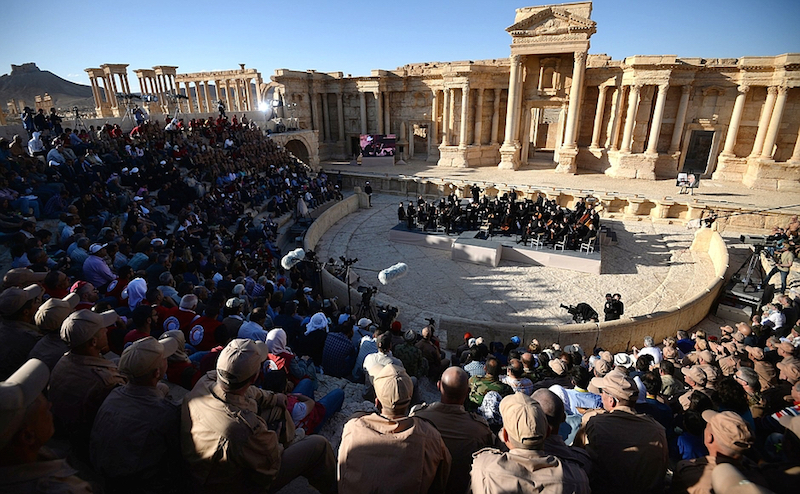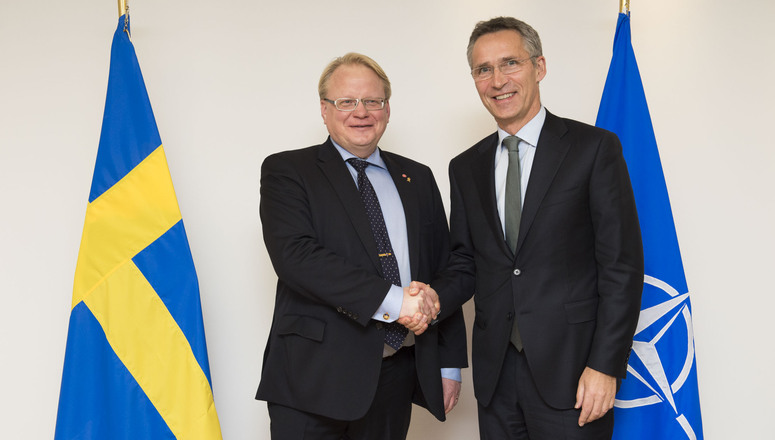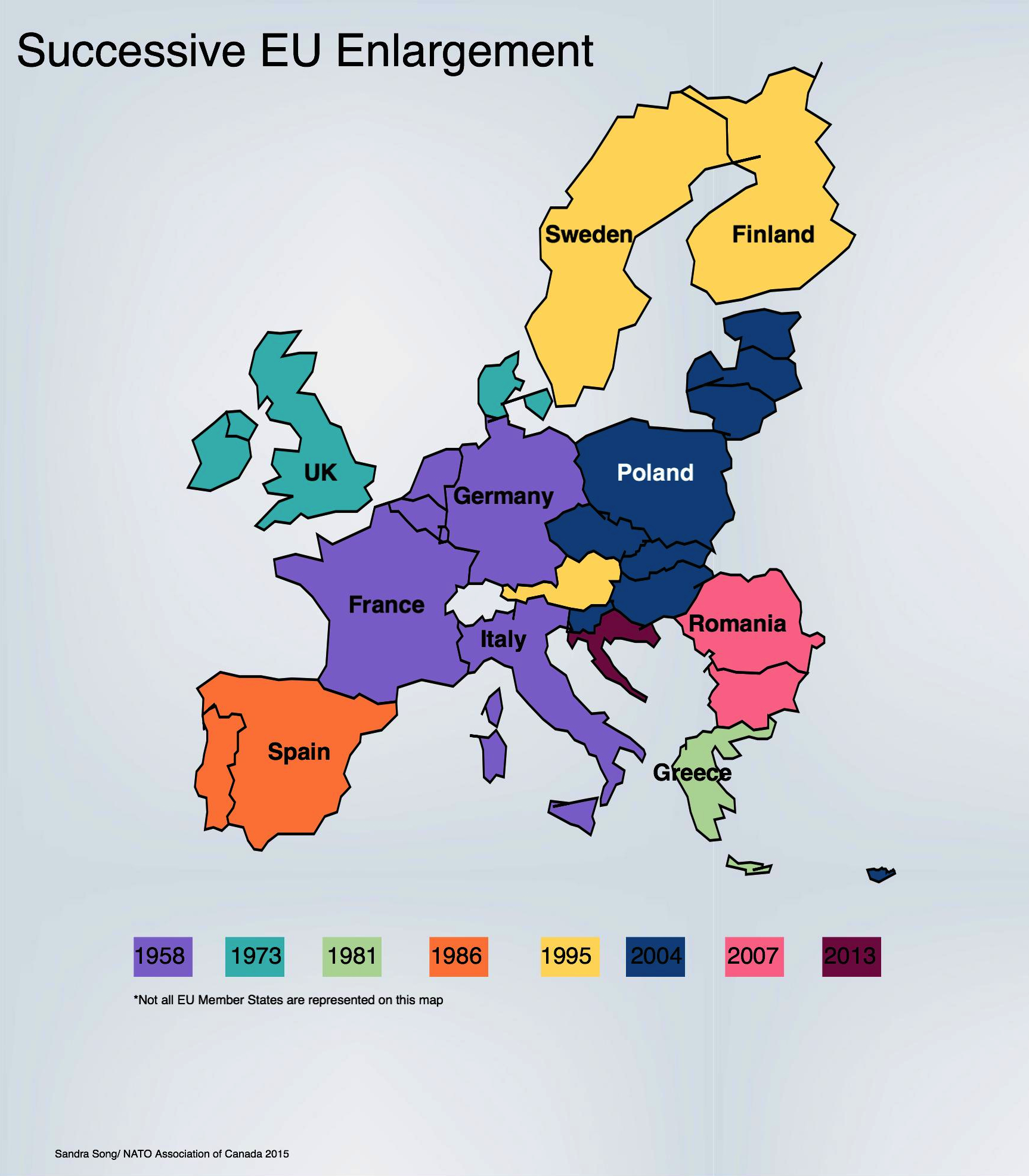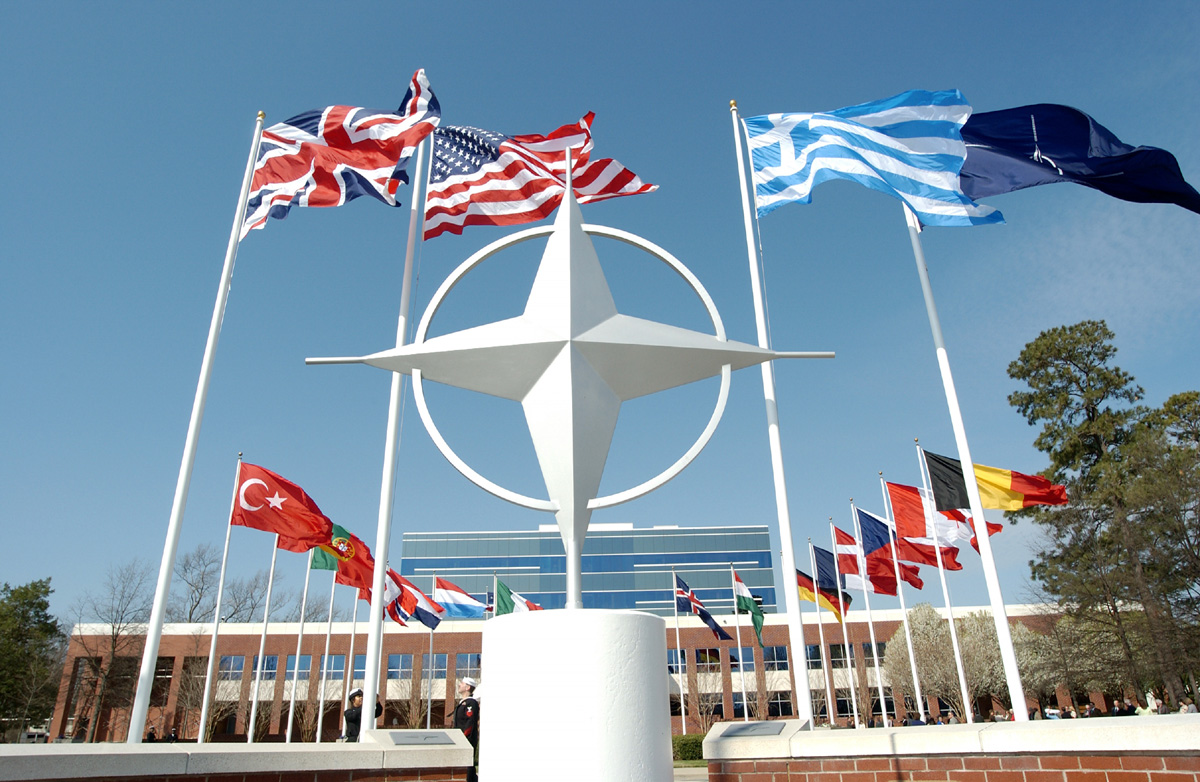The Mariinsky Theatre orchestra recently gave a unique performance in the Syrian city of Palmyra, which was recaptured from IS in late March, 2016 by Syrian soldiers backed by Russian airstrikes. The performance took place at an ancient Roman amphitheatre where, just months ago, IS staged mass beheadings. Through this display, Russia has deployed a cultural offensive to mark the liberation of Palmyra and reinforce its role in Syria.
The concert went remarkably well, if only for 20 minutes, and was titled “Praying for Palmyra: Music Revives Ancient Ruins”. The Roman Theatre of Palmyra is one of the few sites left largely intact after IS’ capture of the city. The contrast between the concert and IS violence was intended to underscore what Russia sees as its underappreciated role in helping Syrian forces, and fighting on the side of civilization against barbarism. “It is the destiny of the Russian soldier at all times to save culture from fascist destruction,” intoned Russia’s minister of culture, Vladimir Medinsky. Before the music began, Mr. Putin appeared in a live broadcast video link from his vacation home on the Black Sea to express “hope that our contemporary civilization will be relieved from the horrible disease of international terrorism”.
The United Nations Educational, Scientific and Cultural Organization (UNESCO) completed a visit to Palmyra to take preliminary stock of destruction at the World Heritage site. “Palmyra is a pillar of Syrian identity, and a source of dignity for all Syrians,” said UNESCO Director-General Irina Bokova. A photograph on stage commemorated Palmyra’s chief of antiquities, Khaleel al-Asaad. It was he who helped to get many of Palmyra’s treasures out of the city, and was beheaded when he refused to give the militants what they wanted.
The liberation of Palmyra and its 2,000-year-old ruins has become a centrepiece in Moscow’s public defence of its Syrian intervention. The Russian’s were so eager to make that point that they flew a group of reporters from Moscow to Syria, and then bused them to Palmyra to watch the performance. More than 100 journalists, photographers and videographers, guests of the Russian Ministry of Defence, landed at the Russian airbase. Yet they were not given free reign but a highly orchestrated view of the city that served to highlight Russia’s achievements. On display for the media was an airbase full of fighter jets and hungry Syrians receiving humanitarian aid (labelled “Russia is with you!”).
UK Foreign Secretary Philipp Hammond described the event as “a tasteless attempt to distract attention from the continued suffering of millions of Syrians.”
Hammond was reported as saying that this was especially evident amid an airstrike upon a refugee camp in northern Syria, in which about 30 people, including women and children, were killed.
Not long before the city was retaken Putin had announced a Russian pullback from Syria. They ordered the withdrawal of the “main part” of their forces, claiming the military mission had been accomplished. Yet the Khmeimim airbase remains in full operation and Pavel Felgenhauer, a military analyst in Moscow, says there was no real withdrawal. “Some of the attack planes, yes, were flown back to Russia, others were flown back to replace them; new advanced helicopters, gunships,” he said. “But everything else stayed. The ground crews mostly, the logistics, the stockpiles of weapons. So that was mostly a diversional PR move.”
The concert in South Ossetia sent an important message about Russia’s intentions in Syria. Mr. Putin is taking credit for Assad’s recent success and its army plans to stay as long as it takes to “defeat terrorism”. Western nations have strongly critiqued Russia’s intervention as an effort to prop up Syrian leader Bashar al-Assad and aid in crushing all opposition, including rebel groups supported by the West. The Russian and Syrian governments have said the Aleppo strikes are targeting the Nusra Front, a jihadist force that is not party to a ceasefire agreed in February. But the US argues that such attacks are direct violations of the ceasefire, and accused the Assad government of targeting civilians.
Palmyra is not the first war-stricken area where Valery Gergiev, the Mariinsky conductor and a long-time Putin supporter, has given a concert. The orchestra played in breakaway South Ossetia to pay tribute to the victims of Georgia’s August 2008 invasion. This took place less than two weeks after the Russian army claimed the region for “the Russian world,” as Putin’s supporters call it.
It was also no coincidence that the concert took place just before Victory Day, the Russian holiday marking the end of the Second World War. Mr. Putin called the Russian soldiers in Syria “worthy successors of the great patriotic war heroes”. The President clearly wants to show that under him the Russian Federation is as successful and strong as the old Soviet Union was under Stalin.
In Syria and in Western capitals however, this charm offensive is less effective. Even some supporters of Mr. Assad are wary of Russia’s growing control over their country. Yet Putin isn’t concentrating on Syrian public opinion at the moment, rather his audience is at home in Russia. For viewers in Russia, the concert was a way to mobilize pride in Russia’s military role abroad. This is especially crucial at a time when the economy at home is mired in the second year of a deep recession. For Russia, a presence in Syria satisfies more than just its military ambitions; it provides a venue for the Russians to display their political and cultural influence.
Disclaimer: Any views or opinions expressed in articles are solely those of the authors and do not necessarily represent the views of the NATO Association of Canada.
Photo curtesy of en.kremlin.ru




